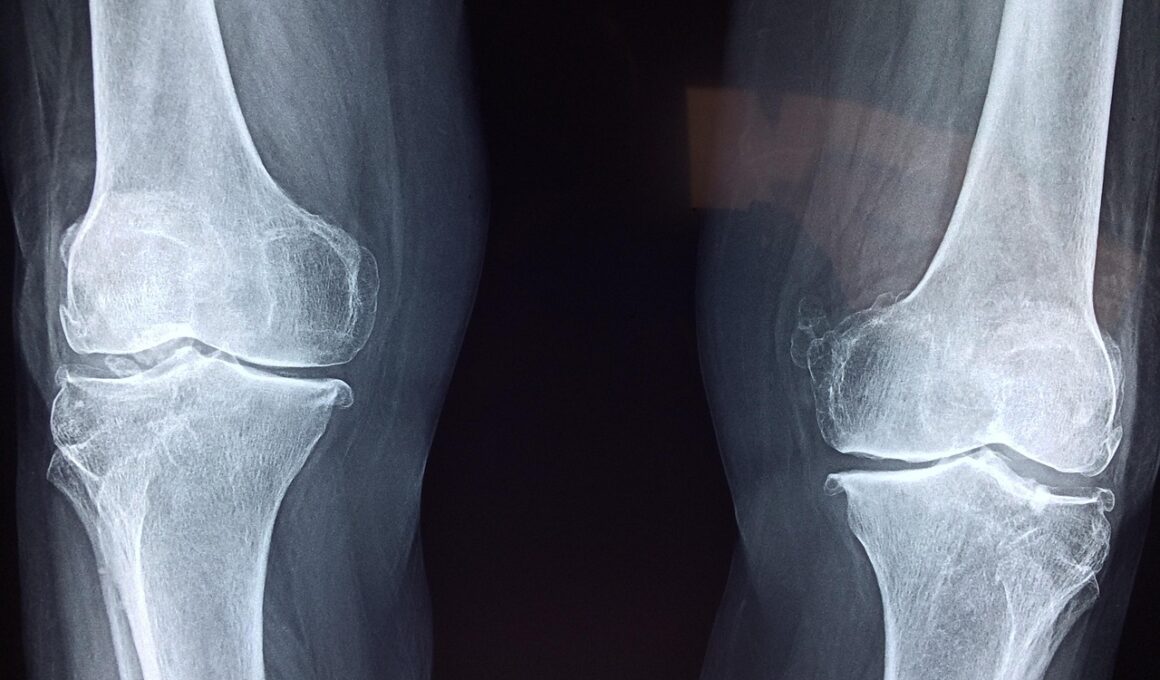The Role of Nutrition in Supporting Canine Orthopedic Health
Nutrition plays a crucial role in promoting orthopedic health in dogs. A well-balanced diet provides the essential nutrients needed for maintaining strong bones and promoting joint health. These nutrients include proteins, fats, carbohydrates, vitamins, and minerals, which all work together to support overall health. A careful selection of high-quality dog food is vital for ensuring these nutritional needs are met. Additionally, certain ingredients can help reduce inflammation and support the healing of injuries. Omega-3 fatty acids, for example, are known for their anti-inflammatory properties and can be beneficial in managing joint diseases. Supplements may also be considered for dogs struggling with orthopedic issues. However, always consult a veterinarian before introducing new dietary elements. Furthermore, proper hydration cannot be overlooked; water is essential for joint lubrication and general health. Regular exercise, combined with an appropriate diet, is key to maintaining a healthy weight, which in turn alleviates stress on joints and bones. Keeping your dog in optimal shape is essential for their orthopedic health, prolonging their mobility and overall quality of life.
Protein is one of the most significant nutrients to incorporate into a dog’s diet for orthopedic health. Dogs require high-quality protein sources which provide amino acids essential for muscle development and repair. Healthy muscles support joints and bones, reducing the risk of injury and pain. Poultry, fish, and eggs are excellent sources of protein and easily digestible. A protein-rich diet can also help with weight management, which is crucial in preventing added stress on the skeleton. In certain cases, dogs with orthopedic problems may benefit from increased protein intake. When choosing a commercial dog food, check the ingredient list for the appropriate percentage of protein. Look for foods where meat is the first ingredient, ensuring you provide your dog with the best quality nutrition available. Additionally, providing a fresh source of protein through natural options can supplement their diet effectively. Always tailor your dog’s protein intake based on their activity levels, age, and specific health needs. Collaborate with your veterinarian to ensure your dog maintains a well-balanced diet and to monitor their weight and overall skeletal health closely.
Importance of Fats in Canine Diets
Fats are an essential part of a dog’s diet, contributing to various aspects of their health. Healthy fats, particularly omega-3 and omega-6 fatty acids, play a vital role in maintaining joint health and reducing inflammation. Omega-3 fatty acids are particularly beneficial for dogs with orthopedic disorders, as they help alleviate pain and swelling associated with conditions like arthritis. Sources of omega-3 include fish oil, flaxseed, and certain types of algae. Omega-6 fatty acids also contribute to a healthy inflammatory response and are found in many vegetable oils. Balancing these fats is crucial to ensure optimal health and performance in dogs. However, feeding your pet too much fat can lead to obesity, which increases the risk of orthopedic issues. Striking the right balance of fats in your dog’s diet is essential for their orthopedic health, ensuring that they receive adequate energy while also supporting joint function. Be sure to consult your veterinarian for the right proportions for your dog’s individual needs. Regular monitoring of your dog’s weight and adjusting their diet accordingly can help in maintaining their overall health.
In addition to proteins and fats, carbohydrates also play an important role in supporting canine orthopedic health. Carbohydrates provide energy necessary for daily activities and exercise. Whole grains, fruits, and vegetables can serve as excellent carbohydrate sources while offering additional nutrients beneficial for overall health. Fiber, often found in whole grains, aids digestion and helps maintain a healthy weight. A healthy weight is essential in preventing excess stress on your dog’s joints, which safeguards against orthopedic problems. However, not all carbohydrates are created equal; ensure that the ingredients come from healthy, digestible sources. Avoid foods with excessive fillers or artificial additives as these can detract from the nutritional value of your dog’s diet. Instead, focus on incorporating ingredients that will supply high-quality energy. Keeping your dog active through regular exercise alongside proper nutrition can further enhance orthopedic health. Monitoring the total caloric intake, especially with more sedentary lifestyles, is crucial for maintaining optimal weight. A well-rounded diet that includes appropriate carbohydrates will ensure your dog is healthy, energized, and well-equipped to face any activities ahead.
Vitamins and Minerals for Bone Health
Vitamins and minerals are critical components of nutritious diets for dogs, specifically affecting bone health and orthopedic wellness. Calcium and phosphorus are two major minerals that support proper bone development and maintenance. Ensuring your dog receives adequate amounts of these minerals, particularly during their growth phases, will significantly impact their skeletal structure. Additionally, Vitamin D is essential for calcium absorption, promoting healthy bone density and strength. Incorporate foods rich in these nutrients into your dog’s diet, such as dairy products, leafy greens, and fish, or consider supplements if necessary. Vitamin C also plays a role in collagen production, which is significant for maintaining healthy joints and connective tissues. Furthermore, B vitamins contribute to overall energy metabolism and should not be overlooked. Always discuss with your veterinarian before adding supplements to their diet to avoid potential toxicity or interactions. Balancing these vitamins and minerals will ensure your dog’s orthopedic health is adequately supported. Regular vet check-ups can help monitor and adjust your dog’s dietary intake to promote optimal growth and health as they age.
Incorporating joint supplements into your dog’s nutrition can provide additional support for orthopedic health. Glucosamine and chondroitin sulfate are popular joint supplements that may help improve joint function and reduce pain associated with arthritis and other orthopedic conditions. These substances work by supporting cartilage maintenance and repair, thereby enhancing mobility. Many commercial dog foods now include these supplements, but additional supplementation might be necessary for dogs already showing signs of joint discomfort. Always consult your veterinarian before starting any new supplement regimen to ensure proper dosage and effectiveness. Other natural supplements, such as turmeric and green-lipped mussel, are also known to have anti-inflammatory properties. Regular monitoring of your dog’s response to these supplements is essential to evaluate their effectiveness. A holistic approach combining a balanced diet, adequate exercise, and proper supplementation, will vastly improve your dog’s orthopedic health. Encourage an active lifestyle, as keeping your dog fit will lead to stronger muscles, which support joints and bones. Work closely with your veterinarian to develop a comprehensive plan tailored to your dog’s specific needs, promoting optimal orthopedic health over time.
Conclusion: A Holistic Approach to Canine Orthopedic Health
In summary, nutrition plays an indispensable role in supporting canine orthopedic health and ensuring your dog leads a happy, healthy life. A diet rich in proteins, healthy fats, carbohydrates, vitamins, and minerals is essential for these goals. Each nutrient serves a distinct purpose that contributes to strong bones, muscles, and overall mobility. Tailoring your dog’s diet according to their age, weight, activity level, and specific health needs is crucial for maintaining their orthopedic health. In addition to a balanced diet, incorporating supplements when necessary under veterinary guidance will provide further support. Regular exercise is also vital in maintaining a healthy weight, which significantly reduces the risk of orthopedic injuries. Monitoring your dog’s exercise and nutrition regimen closely can help catch any potential health issues early. Integrating a holistic approach to their diet and lifestyle will promote not only orthopedic health but enhance their overall quality of life. Keeping open communication with your veterinarian about your dog’s nutritional needs will guide adjustments as necessary. Ultimately, a proactive approach will lead to a happier, healthier companion capable of enjoying all life has to offer.
Monitor & Consult
The importance of monitoring and consulting professionals about your dog’s nutritional health is paramount. Engagement with a qualified veterinarian allows for tailored advice that meets your dog’s unique dietary needs.


